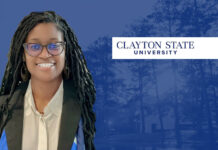 Here is this week’s news of grants to historically Black colleges and universities or for programs of particular interest to African Americans in higher education.
Here is this week’s news of grants to historically Black colleges and universities or for programs of particular interest to African Americans in higher education.
 Southern University, the historically Black educational institution in Baton Rouge, Louisiana, received a $216,831 grant from the National Science Foundation for programs to increase the number of students from underrepresented groups in STEM majors. The grant is under the director of Michael Stubblefield, vice chancellor for research and strategic initiatives at the university. Dr. Stubblefield is a graduate of Southern University and holds a Ph.D. in engineering science from Louisiana State University.
Southern University, the historically Black educational institution in Baton Rouge, Louisiana, received a $216,831 grant from the National Science Foundation for programs to increase the number of students from underrepresented groups in STEM majors. The grant is under the director of Michael Stubblefield, vice chancellor for research and strategic initiatives at the university. Dr. Stubblefield is a graduate of Southern University and holds a Ph.D. in engineering science from Louisiana State University.
 The University of Alabama is the lead institution in a five-year $5 million grant program from the National Science Foundation to support the Alabama Louis Stokes Alliances for Minority Participation. The program seeks to increase the number of students from underrepresented groups who pursue degree programs in STEM fields. The alliance offers performance-based stipends to incoming college students who plan to major in STEM disciplines. The funds will also support a summer bridge program for these students to prepare them for college.
The University of Alabama is the lead institution in a five-year $5 million grant program from the National Science Foundation to support the Alabama Louis Stokes Alliances for Minority Participation. The program seeks to increase the number of students from underrepresented groups who pursue degree programs in STEM fields. The alliance offers performance-based stipends to incoming college students who plan to major in STEM disciplines. The funds will also support a summer bridge program for these students to prepare them for college.
Historically Black Morgan State University in Baltimore received a $144,000 grant from the Institute of Museum and Library Science that will be used to help finance the digitization of 5,000 objects of fine arts at the university’s James E. Lewis Museum of Art.
North Carolina A&T State University, the historically Black educational institution in Greensboro, received a five-year, $1.2 million grant from the U.S. Department of Education for a program to increase the number of special education teachers in the North Carolina public schools.
 The School of Pharmacy at historically Black Hampton University in Virginia received a five-year, $427,799 grant from the National Institutes of Health for a program to increase the number of students from underrepresented groups who participate in biomedical and academic research.
The School of Pharmacy at historically Black Hampton University in Virginia received a five-year, $427,799 grant from the National Institutes of Health for a program to increase the number of students from underrepresented groups who participate in biomedical and academic research.
 Yale University received a five-year, $10 million grant from the National Institutes of Health that will fund the establishment of the Yale Transdisciplinary Collaborative Center for Health Disparities Research. The center will attempt to develop methods for early detection of individuals who are at high risk for hypertension and diabetes. The program will be under the direction of Marcella Nunez Smith, an associate professor of medicine and public health at Yale. She is a graduate of Swarthmore College in Pennsylvania and medical college at Thomas Jefferson University in Philadelphia.
Yale University received a five-year, $10 million grant from the National Institutes of Health that will fund the establishment of the Yale Transdisciplinary Collaborative Center for Health Disparities Research. The center will attempt to develop methods for early detection of individuals who are at high risk for hypertension and diabetes. The program will be under the direction of Marcella Nunez Smith, an associate professor of medicine and public health at Yale. She is a graduate of Swarthmore College in Pennsylvania and medical college at Thomas Jefferson University in Philadelphia.
The University of Maryland Eastern Shore is the lead institution in a five-year, $15.5 million grant program to support the Living Marine Resources Cooperative Science Center at the university. The grant is funded by the National Oceanic and Atmospheric Administration. Three other historically Black universities will participate in the project: Delaware State University, Savannah State University, and Hampton University.
 Historically Black University of Arkansas at Pine Bluff received a $265,000 grant from the National Science Foundation to fund improvements to the university’s Immersive 3-D Visualization, Teaching, Research, and Outreach Laboratory. The grant project is under the direction of Sederick C. Rice, an assistant professor of biology at the university. Dr. Rice is a graduate of the University of Arkansas at Pine Bluff, where he majored in biology. He went on to earn a master’s degree in biology from Delaware State University and a Ph.D. in cellular and molecular biology from the College of Medicine at the University of Vermont.
Historically Black University of Arkansas at Pine Bluff received a $265,000 grant from the National Science Foundation to fund improvements to the university’s Immersive 3-D Visualization, Teaching, Research, and Outreach Laboratory. The grant project is under the direction of Sederick C. Rice, an assistant professor of biology at the university. Dr. Rice is a graduate of the University of Arkansas at Pine Bluff, where he majored in biology. He went on to earn a master’s degree in biology from Delaware State University and a Ph.D. in cellular and molecular biology from the College of Medicine at the University of Vermont.
Jackson State University, a historically Black educational institution in Mississippi, received a $350,000 grant from the National Science Foundation to investigate the process of “flipped learning” in STEM courses. The concept involves “school work at home and homework at school.” Students in engineering and mathematics classes will access professors’ lectures online before coming to class. They will then spend class time reviewing what they learned and asking questions related to the online instruction.









